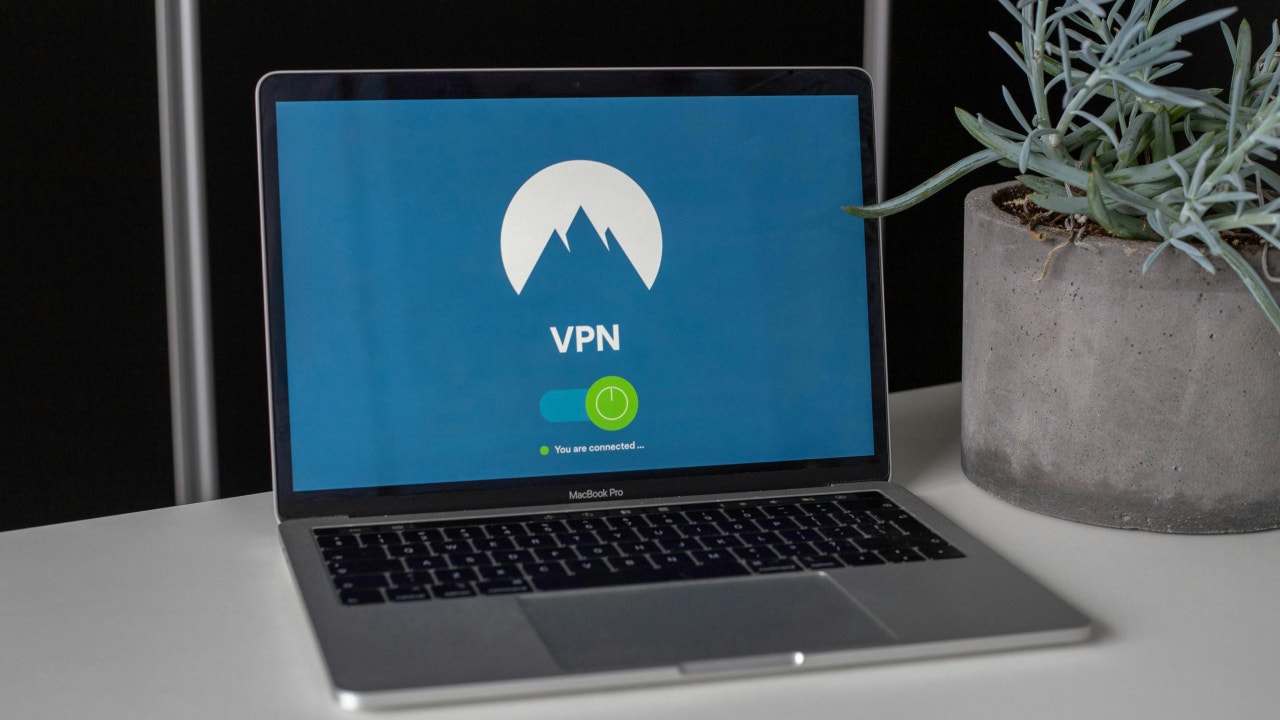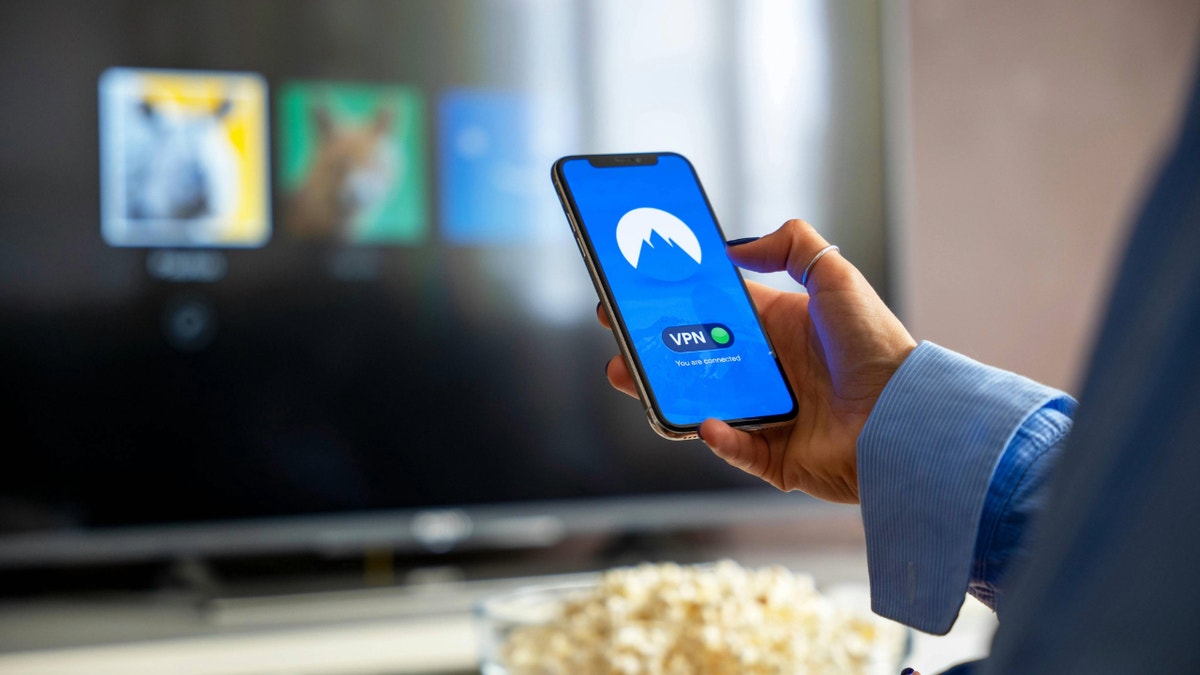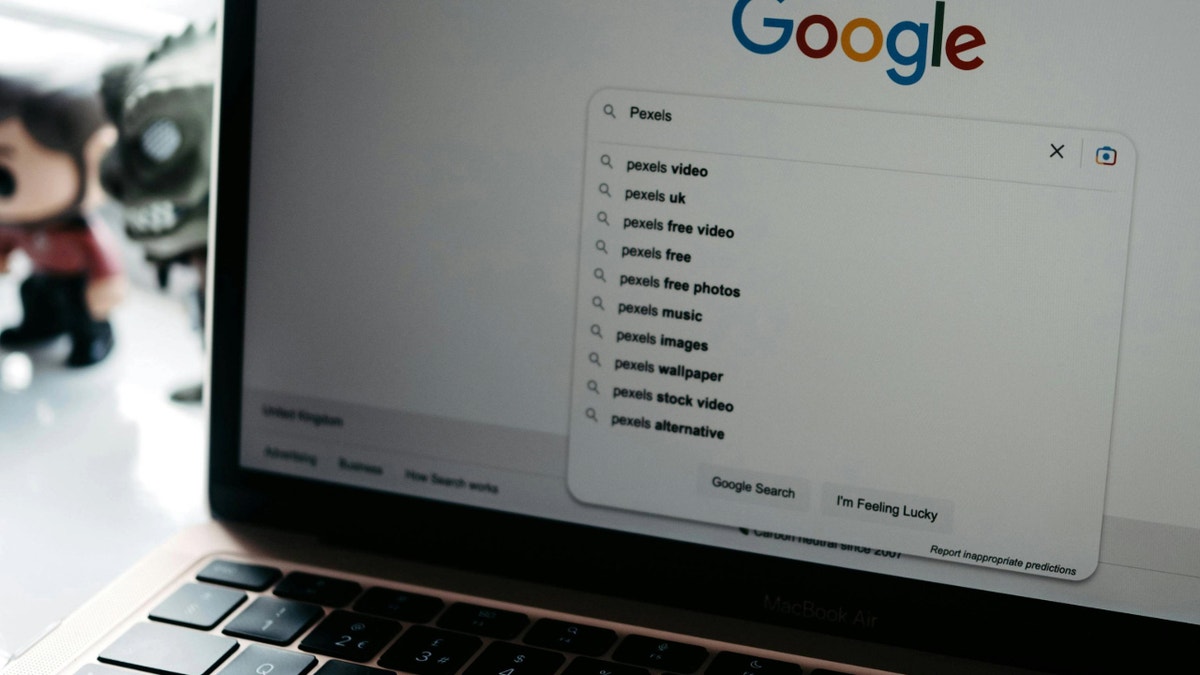Technology
Poison pill tool could break AI systems stealing unauthorized data, allowing artists to safeguard their works

A new image protection tool was designed to poison AI programs that are trained using unauthorized data, giving creators a new way to safeguard their pieces and harm systems they say are stealing their works.
Nightshade, a new tool from a University of Chicago team, puts data into an image’s pixels that damage AI image generators that scour the web looking for pictures to train on, causing them to not work properly. An AI program might interpret a Nightshade-protected image of a dog, for example, as a cat, a photo of a car could be seen as a cow, and so on, causing the machine to malfunction, according to the team’s research.
A visitor takes a picture with his mobile phone of an image designed with artificial intelligence by Berlin-based digital creator Julian van Dieken inspired by Johannes Vermeer’s painting “Girl with a Pearl Earring” at the Mauritshuis museum in The Hague on March 9, 2023. Julian van Dieken’s work made using artificial intelligence is part of the special installation of fans’ recreations of Johannes Vermeer’s painting “Girl with a Pearl Earring” on display at the Mauritshuis museum. (SIMON WOHLFAHRT/AFP via Getty Images)
WHAT IS ARTIFICIAL INTELLIGENCE (AI)?
“Nightshade’s purpose is not to break [AI] models,” Ben Zhao, the University of Chicago professor heading the Nightshade team, wrote. “It’s to disincentivize unauthorized data training and encourage legit licensed content for training.”
“For models that obey opt-outs and do not scrape, there is minimal or zero impact,” he continued.
ARTIST SUES AI IMAGE GENERATORS FOR ALLEGEDLY USING HER WORK TO TRAIN BOTS:
WATCH MORE FOX NEWS DIGITAL ORIGINALS HERE
Text-to-image AI generators like Midjourney and Stable Diffusion create pictures based on users’ prompts. The programs are trained using text and images from across the internet and other sources.
Karla Ortiz, a San Francisco-based fine artist, who says her artwork was used to train the tech, filed a lawsuit in January against Midjourney and Stable Diffusion for copyright infringement and right of publicity violations. The defendants moved to dismiss the case in April, but the district judge overseeing the case allowed the plaintiffs to submit a new complaint after a July hearing.
“It feels like someone has taken everything that you’ve worked for and allowed someone else to do whatever they want with it for profit,” Ortiz told Fox News in May. “Somebody is able to mimic my work because a company let them.”

An artificial intelligence artist who goes by the name “Rootport” wears gloves to protect his identity and demonstrates how he produces AI art. (RICHARD A. BROOKS/AFP via Getty Images)
THE LAST LAUGH: HOW COMEDIANS PLAN TO TURN THE TABLES ON AI SCRAPING THEIR MATERIAL
Another plaintiff in the lawsuit, Nashville-based artist Kelly McKernan, began noticing imagery online similar to their own that was apparently created by entering their name into AI image engines last year.
“At the end of the day, someone’s profiting from my work,” McKernan said. “We’re David against Goliath here.”
In an effort to fight back against AI machines hijacking their artistic styles, McKernan and Ortiz collaborated with Zhao and the University of Chicago team on another art-protecting project called Glaze, a “system designed to protect human artists by disrupting style mimicry,” according to its website.
When Glaze, Nightshade’s predecessor, is applied to an image, it alters how AI machines interpret the picture without changing the way it looks to humans. But unlike Nightshade, Glaze doesn’t cause the model to malfunction.

Illustrator and content artist Karla Ortiz poses in her studio in San Francisco, California. (AMY OSBORNE/AFP via Getty Images)
HOW DEEPFAKES ARE ON THE VERGE OF DESTROYING POLITICAL ACCOUNTABILITY
Still, artists face challenges protecting their works from AI.
“The problem, of course, is that these approaches do nothing for the billions of pieces of content already posted online,” Hany Farid, a professor at the University of California, Berkeley’s School of Information, told Fox News in a statement. “The other limitation with this type of approach is that when it gets hacked — and it will — creators will have posted their content and won’t have protection.”
“That is, it creates a somewhat false sense of protection,” he continued.
No major AI image generators, however, have hacked Nightshade, Zhao said.

Illustrator and content artist Karla Ortiz’s website displays a design and illustration she created for the movie Doctor Strange, in San Francisco, California, on March 8, 2023. Ortiz and two other artists have filed a class-action lawsuit against companies with art-generating services. (AMY OSBORNE/AFP via Getty Images)
“We are not aware of any techniques that can detect it,” he wrote on X. “If/when we find any, we’ll update Nightshade to evade it.”
The University of Chicago team, Stability AI and Midjourney did not return requests for comment.
To watch the full interview with Ortiz, click here.

Technology
The US finalizes CHIPS Act funding for Samsung and Texas Instruments
The US Commerce Department has awarded Samsung and Texas Instruments with a combined over $6 billion in “direct funding under the CHIPS Incentives Program’s Funding Opportunity for Commercial Fabrication,” according to a pair of announcements published on Friday.
Samsung will get the larger of the two awards at $4.745 billion. The Commerce Department says the company will use this as part of its planned $37 billion investment in Texas chip facilities that include two new “leading-edge logic fabs and an R&D fab” in Taylor, Texas, and the expansion of its plant in Austin.
The company was originally slated to receive $6.4 billion. In a statement reported by Bloomberg, the company said that its “mid-to-long-term investment plan has been partially revised to optimize overall investment efficiency,” which suggests the company has dialed back its plans, according to the outlet.
Texas Instruments will receive $1.61 billion to bolster the $18 billion it plans to spend on projects like constructing two wafer fabs in Texas and a third in Utah. The Commerce Department announced smaller awards this week too, including $407 million in funding for Amkor Technology, a US-based company that tests and packages chips for companies like Apple.
All three awards were announced earlier this year, with Samsung first in April, and they join other CHIPS Act funding grants given to companies like Micron, Intel, and TSMC. And their finalizations come with just under a month to go before Donald Trump, who has criticized the CHIPS Act, assumes the US Presidency on January 20th.
Technology
Do you need a VPN at home? Here are 10 reasons you do

Have you ever felt a little uneasy while browsing the internet, wondering who might be watching your online activities?
Well, let me introduce you to a handy tool that can put your mind at ease: the virtual private network, or VPN.
Whether you’re working from home, streaming your favorite shows or just exploring the web, a VPN can help ensure that your data stays secure and your privacy intact. So, let’s dive into why having a VPN at home is a smart move.
GET SECURITY ALERTS, EXPERT TIPS — SIGN UP FOR KURT’S NEWSLETTER — THE CYBERGUY REPORT HERE
A VPN on a laptop. (Kurt “CyberGuy” Knutsson)
What is a VPN?
A virtual private network, or VPN, encrypts your internet traffic and reroutes it through a server in a different location than your own. VPNs make it appear that you are connecting to the internet from whichever location the server is hosted in rather than your actual location.
When you first connect to a network using a VPN, your device will establish a secure connection with the VPN server, and your device’s IP address will appear as the VPN server, meaning that only your internet service provider will see that you’re connecting to a VPN server. Normally, when you connect to a website, the website or any online services you visit can see your device’s technical information, including location-sensitive data such as IP addresses.
THE BEST VPNS FOR BROWSING THE WEB IN 2024
Why would you want a VPN at home?
While your home internet connection is more secure than a public Wi-Fi connection, VPNs still provide a greater sense of privacy and access to content that might be restricted due to location. Here are 10 reasons I have for getting a home VPN.
1. Secure communication
Online communication can be hit or miss when it comes to security. Some messaging services, such as Whatsapp, use end-to-end device encryption, which helps keep your messages secure, but other messaging services, such as Skype, don’t use end-to-end encryption. If you use a VPN with any communication apps, then all your connection and messaging data between your device and the VPN server is fully encrypted.

A VPN on a smartphone. (Kurt “CyberGuy” Knutsson)
2. Access region-locked content
Online content and services like Netflix are restricted to specific geographic regions. This content can range from news websites to video streaming platforms and social media apps. Using a VPN at home can appear to be using the internet from another location, allowing you to access restricted services.
3. Avoid bandwidth throttling
Sometimes, an internet service provider (ISP) will slow down bandwidth or certain online activities. One of the most common reasons networks do this is to manage network congestion, especially during peak hours. You might notice that your home internet connection slows down at night, when everyone is home from work, or it might slow down when summer vacation starts. Using a VPN will prevent your service provider from identifying the type of web content you are accessing, making it impossible for your ISP to slow down your traffic.
4. Keep your Wi-Fi activity hidden
A VPN also keeps your internet activity private from Wi-Fi network admins, who, if technically skilled enough, can figure out which websites you’ve visited. If you’re worried about the Wi-Fi admin of your office, hotel, school or other public place having access to your browsing history, a VPN is the perfect solution for you. When it comes to your own home Wi-Fi network, a VPN will keep your browsing history private from other household members.
WHAT IS ARTIFICIAL INTELLIGENCE (AI)?
5. Defend against cyberattacks
Hackers deploy large-scale cyberattacks to observe network activity and steal your information. These attacks are particularly prevalent on public Wi-Fi networks, which often have minimal security measures, but they can also target secured networks. Using a VPN can significantly enhance your security by providing encryption for your internet traffic, making it difficult for hackers to intercept and read your data. This encryption is especially crucial when using public Wi-Fi, as it secures your information from potential eavesdroppers.
Additionally, a VPN masks your real IP address with that of the VPN server, helping to protect your identity online and making it harder for attackers to target you directly. However, it is essential to understand that while a VPN adds a layer of security, it is not a comprehensive solution against all cyber threats.
A VPN does not prevent malware infections or phishing attacks, so you must still employ strong antivirus software and exercise caution when clicking on links or downloading files. Get my picks for the best 2024 antivirus protection winners for your Windows, Mac, Android and iOS devices.
Furthermore, not all VPNs are created equal; some may have vulnerabilities or questionable privacy practices. It is crucial to choose a reputable provider that uses strong encryption and has a clear no-logging policy.
6. Fight against internet censorship
There’s a myriad of reasons, ranging from political to economic, that countries use to justify censoring certain apps and websites. It can be incredibly frustrating for citizens and anyone traveling to that country to lose access to email, social media, news websites and other tools that keep us connected to the world around us. I’ve used VPNs extensively while traveling to ensure that I can always view my most important websites, no matter where I actually am. As I’ve mentioned, a VPN can mask your IP address and make it appear as traffic from a different country, allowing you to bypass online geographic restrictions.
7. Save money by avoiding geographic price changes
One of the best reasons to have a VPN at home is that it can help you save money and find better deals while online shopping. Some online retailers change their prices depending on users’ locations. However, when using a VPN while shopping for plane tickets, hotels or gifts, it’s possible to find cheaper prices just by changing your location.
8. Keep your online activity private from governments
It’s no longer the work of sci-fi. We do know that governments, nearly all of them, surveil their citizens. A VPN will add a layer of privacy, making it significantly more difficult for governments to detect your web traffic. Even if you feel that you have nothing to hide, online privacy is something you should feel free to exercise.
9. Hide your browsing history from your ISP
Much like governments, your ISP can surveil your online activity with ease. While most ISPs claim that they don’t sell your browsing data, they are often allowed through contracts with marketing agencies to give your data away for free to advertise to you. The simplest way to hide your online activity from your ISP is to use a VPN. When using a VPN, your ISP won’t be able to see which websites you visit or which apps you use.

Image of a Google search on a laptop (Kurt “CyberGuy” Knutsson)
HOW VPNS SHIELD YOUR IDENTITY AND SECURE YOUR FINANCIAL TRANSACTIONS FROM THEFT
10. Experience speedy low-ping online gaming
While it may seem counterintuitive, a VPN can offer faster connection speeds for online gaming. It can also help prevent your ISP from throttling bandwidth directly from gaming servers. By changing your VPN’s location, you can connect to a server closer to your gaming server, which will give you better latency. This is also called ping, which determines how fast the server responds to your inputs.
CAN YOU BE TRACKED WHEN USING A VPN?
Tips for maximizing your VPN security
To fully leverage the benefits of your VPN and enhance your online security, consider these important tips that will help protect your personal information and ensure safe browsing.
1. Choose a reliable VPN: Select a reputable VPN service with strong encryption protocols. For best VPN software, see my expert review of the best VPNs for browsing the web privately on your Windows, Mac, Android and iOS devices.
2. Always use VPN on public Wi-Fi: Never access financial accounts on public networks without activating your VPN first.
3. Enable two-factor authentication (2FA): Add an extra layer of security to your accounts by enabling 2FA.
4. Use strong, unique passwords: Create complex passwords for each of your accounts and consider using a password manager. Consider using a password manager to generate and store complex passwords.
5. Regularly monitor your accounts: Check your retirement accounts frequently for any suspicious activity.
6. Keep software updated: Ensure your devices and apps are always up-to-date with the latest security patches.
7. Be cautious of phishing scams while using a VPN: Even with a VPN securing your connection, phishing scams remain a significant threat to your online safety. These scams often use deceptive emails or links to steal sensitive information like passwords or credit card numbers. To protect yourself, combine the use of a VPN with strong antivirus software that detects and blocks phishing attempts. Additionally, always scrutinize unsolicited emails, avoid clicking on suspicious links, and never provide personal information without verifying the source. For the best protection, check out my expert reviews of the top 2024 antivirus solutions for your Windows, Mac, Android and iOS devices. Together with a VPN, this approach helps keep your personal information and digital assets safe.
Kurt’s key takeaways
If you want to start taking your online privacy seriously, it’s worth getting a VPN. There are a wide range of options available. You can pick up a router with a VPN or install a software VPN on your devices. I prefer to have a VPN on my laptop and smartphone, and I especially find it useful when traveling internationally.
Do you have a reason for using a VPN we didn’t feature in the list? Let us know by writing us at Cyberguy.com/Contact
For more of my tech tips and security alerts, subscribe to my free CyberGuy Report Newsletter by heading to Cyberguy.com/Newsletter
Ask Kurt a question or let us know what stories you’d like us to cover.
Follow Kurt on his social channels:
Answers to the most-asked CyberGuy questions:
New from Kurt:
Copyright 2024 CyberGuy.com. All rights reserved.
Technology
Google’s counteroffer to the government trying to break it up is unbundling Android apps
/cdn.vox-cdn.com/uploads/chorus_asset/file/24924653/236780_Google_AntiTrust_Trial_Custom_Art_CVirginia__0003_1.png)
The Department of Justice’s list of solutions for fixing Google’s illegal antitrust behavior and restoring competition in the search engine market started with forcing the company to sell Chrome, and late Friday night, Google responded with a list of its own (included below).
Instead of breaking off Chrome, Android, or Google Play as the DOJ’s filing considers, Google’s proposed fixes aim at the payments it makes to companies like Apple and Mozilla for exclusive, prioritized placement of its services, its licensing deals with companies that make Android phones, and contracts with wireless carriers. They don’t address a DOJ suggestion about possibly forcing Google to share its valuable search data with other companies to help their products catch up.
According to Google’s lawyers, the ruling pointed to arrangements with Apple and Mozilla for their browsers, the companies that make Android phones, and wireless carriers. Google regulatory VP Lee-Anne Mulholland writes on the company blog, “This was a decision about our search distribution contracts, so our proposed remedies are directed to that.
For three years, its proposal would block Google from signing deals that link licenses for Chrome, Search, and its Android app store, Google Play, with placement or preinstallation of its other apps, including Chrome, Google Assistant, or the Gemini AI assistant.
It would also still allow Google to pay for default search placement in browsers but allow for multiple deals across different platforms or browsing modes and require the ability to revisit the deals at least once a year.
While the company still plans to appeal Judge Amit Mehta’s ruling that said, “Google is a monopolist, and it has acted as one to maintain its monopoly,” first, it says it will submit a revised proposal on March 7th, ahead of a two-week trial over the issue in April.
-

 Politics1 week ago
Politics1 week agoCanadian premier threatens to cut off energy imports to US if Trump imposes tariff on country
-
/cdn.vox-cdn.com/uploads/chorus_asset/file/25782636/247422_ChatGPT_anniversary_CVirginia.jpg)
/cdn.vox-cdn.com/uploads/chorus_asset/file/25782636/247422_ChatGPT_anniversary_CVirginia.jpg) Technology1 week ago
Technology1 week agoInside the launch — and future — of ChatGPT
-
/cdn.vox-cdn.com/uploads/chorus_asset/file/25789444/1258459915.jpg)
/cdn.vox-cdn.com/uploads/chorus_asset/file/25789444/1258459915.jpg) Technology1 week ago
Technology1 week agoOpenAI cofounder Ilya Sutskever says the way AI is built is about to change
-

 Politics1 week ago
Politics1 week agoU.S. Supreme Court will decide if oil industry may sue to block California's zero-emissions goal
-
/cdn.vox-cdn.com/uploads/chorus_asset/file/25546252/STK169_Mark_Zuckerburg_CVIRGINIA_D.jpg)
/cdn.vox-cdn.com/uploads/chorus_asset/file/25546252/STK169_Mark_Zuckerburg_CVIRGINIA_D.jpg) Technology1 week ago
Technology1 week agoMeta asks the US government to block OpenAI’s switch to a for-profit
-

 Politics1 week ago
Politics1 week agoConservative group debuts major ad buy in key senators' states as 'soft appeal' for Hegseth, Gabbard, Patel
-

 Business6 days ago
Business6 days agoFreddie Freeman's World Series walk-off grand slam baseball sells at auction for $1.56 million
-
/cdn.vox-cdn.com/uploads/chorus_asset/file/23951353/STK043_VRG_Illo_N_Barclay_3_Meta.jpg)
/cdn.vox-cdn.com/uploads/chorus_asset/file/23951353/STK043_VRG_Illo_N_Barclay_3_Meta.jpg) Technology6 days ago
Technology6 days agoMeta’s Instagram boss: who posted something matters more in the AI age
















